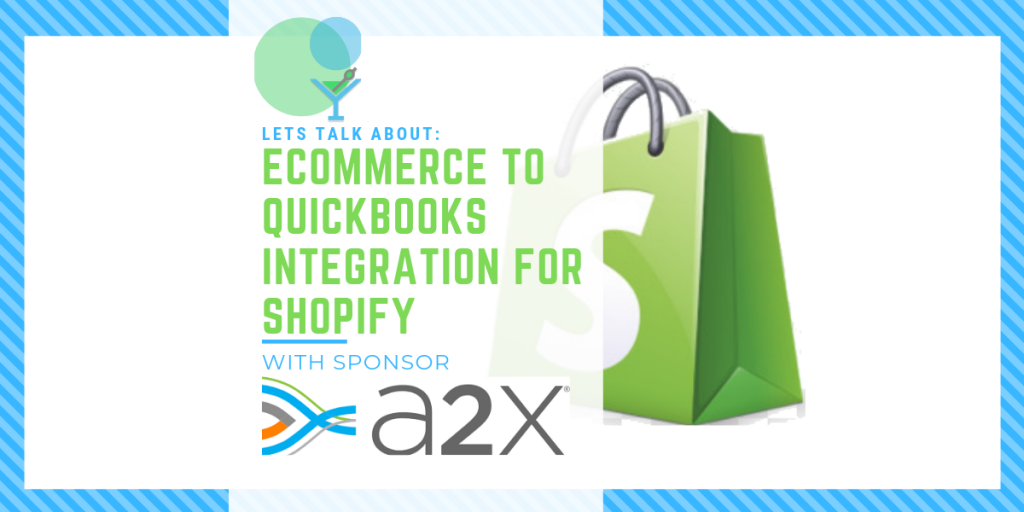After many months of development and hard work behind the scenes, the latest eCommerce to QuickBooks integration is here: A2X for Shopify.
During the past four and a half years, we have helped thousands of Amazon sellers and accountants to simplify their bookkeeping by automating the process of importing financial information into QuickBooks Online.
Through accounting for settlements rather than individual transactions, A2X provides a highly accurate and scalable method of recording transactions. This settlement-based approach also ensures that all transactions related to Amazon reconcile with payouts received.
In this manner, A2X takes the hassle out of Amazon accounting. But what about Shopify, the backend store platform that hosts over 700,000 shops worldwide? A large number of our clients also have Shopify stores, or work with Shopify store owners as their accountants.
So we asked the question:
?How difficult is it to account for sales through Shopify and what kinds of software solutions are available for importing this data into cloud accounting systems?
Great question. There are a handful of integrations currently available, the most prominent one being Bold. However, none of them provides settlement accounting in the way that A2X does.
A2X vs. Bold Shopify integrations what is different?
The Bold integration connects Shopify to QuickBooks Online at the transactional level rather than accounting for settlements. This is done through an automatic daily import of transactions.
The main benefit of daily imports is that they provide businesses with a good understanding of sales activity by simply looking at their accounting software.
However, payouts from Shopify Payments are made in batches which are determined inside of Shopify, most commonly either every other business day, once a week or once per month. When it comes time to reconcile sales activity with the payouts received, it becomes difficult to account for fees and determine which sales relate to which settlement.
This is where A2X for Shopify provides a unique advantage that no other integrations offer: settlement accounting.
How does A2X for Shopify work?
A2X for Shopify automatically imports your Shopify Payments payouts: Every time Shopify sends you a payout, A2X for Shopify pulls the transactions, fees, refunds and adjustments through, and generates a summary ready to post into your accounting system.
A2X for Shopify then posts summarized statements into QuickBooks: Once the summary of transactions is ready, A2X for Shopify then posts the summary to your accounts automatically. You can select which chart of accounts to map each transaction type into for accurate and reliable bookkeeping.
Reconcile your Shopify Payments in QuickBooks perfectly for each payout: When the Shopify payouts arrive in your bank account, you can easily reconcile them with your A2X for Shopify statements.
Through this process, it is just as easy to manage 2 transactions per day as it is for 2000. Just select your plan, set up the integration and you’re all good to go.
Key Benefits of A2X for Shopify:
?Big fan of the A2X Xero integration. Finally, after long last, I’m able to get a complete picture on my P&L statement. Has been a major game changer and I can’t recommend it highly enough. J
-
Complete accuracy: Guaranteed to reconcile down to the cent.
-
Painless to set up: Easy step-by-step process to set your account up in minutes.
-
Automated data entry: Automate away a tedious part of your bookkeeping to reduce the accounting workload and make your life easier.
-
Expert support: We have Shopify and accounting experts on hand to help you out with your account for free.
Where can I learn more?
More information about our A2X for Shopify QuickBooks integration here. To help with getting setup, check out our support center which is packed full of helpful information:
Or alternatively, if A2X for Shopify sounds like a good fit for your business or clients, get in touch with us today to book a call with our support team. If you would like to try A2X for Shopify risk-free, we can get you set up with a 30 day trial account to take it for a test run, no credit card required.
After rigorous beta testing, we are excited to bring our latest development to a wider audience and continue on our mission to help eCommerce businesses with efficiently accounting for their transactions.”
